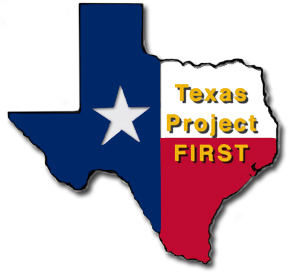en Español • Print • Share
A B C D E F G H I J K L M N O P Q R S T U V W X Y Z
Early Childhood Intervention (ECI) (Intervención en la primera infancia) – Programs and services provided to infants and toddlers with developmental delays from birth through age two administered under Part C of the Individuals with Disabilities Education Act (IDEA). In Texas, ECI is administered by Texas Health & Human Services (HHS).
Early Intervening Services (EIS) (Servicios de intervención temprana) – IDEA 2004 allows schools to use 15% of IDEA funds for support services for students not identified with a disability, but who need additional academic and behavioral support to succeed in the general education classroom. The intent of the law is to address disproportionality and misidentification of students referred for special education services. See also Response to Intervention.
EDFacts (Banco de datos del gobierno que contiene información educacional) – An initiative of the U.S. Department of Education to put performance data at the center of policy, management and budget decisions for all K-12 educational programs. All State Education Agencies submit their educational data to the U.S. Department of Education through an electronic data system called the Education Data Exchange Network (EDEN).
Education Data Exchange Network (EDEN) (Red de intercambio de datos sobre la educación) – A centralized system of collecting data from all state education agencies and consolidating it into a single data base, maintained by the U.S. Department of Education. EDEN provides data on demographics, program participation, federal funding, implementation and outcomes. This data is available at the state, local education agency, and school levels.
Education Service Center (ESC) (Centro de Servicios Educacionales) – Texas has 20 ESCs that cover the state. ESCs provide leadership, training and technical assistance to school districts, parents, and other community stakeholders.
Eligibility (Elegibilidad) – The determination that a student is a “child with a disability” as defined by IDEA; and as a result of the disability, the child needs special education services to benefit from education. See also Diagnosis vs. Disability Label and Commissioner’s Rules Guidance on Eligibility Criteria.
Emotional Disturbance (ED) (Trastorno emocional) – Under IDEA, Emotional Disturbance is “...a condition exhibiting one or more of the following characteristics over a long period of time and to a marked degree that adversely affects a child’s educational performance:
- An inability to learn that cannot be explained by intellectual, sensory, or health factors.
- An inability to build or maintain satisfactory interpersonal relationships with peers and teachers.
- Inappropriate types of behavior or feelings under normal circumstances.
- A general pervasive mood of unhappiness or depression.
- A tendency to develop physical symptoms or fears associated with personal or school problems.
ED includes schizophrenia, but does not apply to children who are socially maladjusted, unless it is determined that they have an emotional disturbance.” A determination of emotional disturbance must comply with criteria set forth in federal and state law as described in the Emotional Disturbance framework of the Legal Framework for the Child-Centered Process.
English Language Learner (ELL) (Estudiante del idioma inglés) – Children who do not speak English in the home and who are in the process of learning English, also referred to as Limited English Proficient students (LEP).
Evaluation (Evaluación) – The collection of information to determine whether the student is a child with a disability, and to determine the educational needs of the child. The team that collects or reviews evaluation data, referred to as the group of qualified professionals, must use a variety of assessment tools and strategies to gather relevant functional, developmental, and academic information, including information provided by the parent. An evaluation may include giving individual tests, observing the student, looking at educational records, and talking with the student and his/her teachers and parents.
Every Student Succeeds Act (ESSA) – The ESSA is the 2015 reauthorization of the federal Elementary and Secondary Education Act (ESEA), the national education law that provides for equal opportunity for all students. The ESSA replaced the No Child Left Behind Act (NCLB), the 2001 reauthorization of the ESEA.
Extended School Year Services (ESY) (Servicios del año escolar extendido) – An individualized educational program (IEP) for children with disabilities that is provided beyond the regular school year. The need for ESY services must be determined on an individual basis by the child's ARD committee from formal and/or informal evaluations provided by the LEA or the parents. A child is eligible for ESY services when the child has exhibited, or reasonably may be expected to exhibit, severe or substantial regression in critical skill area(s) that cannot be recouped within a reasonable period of time.
